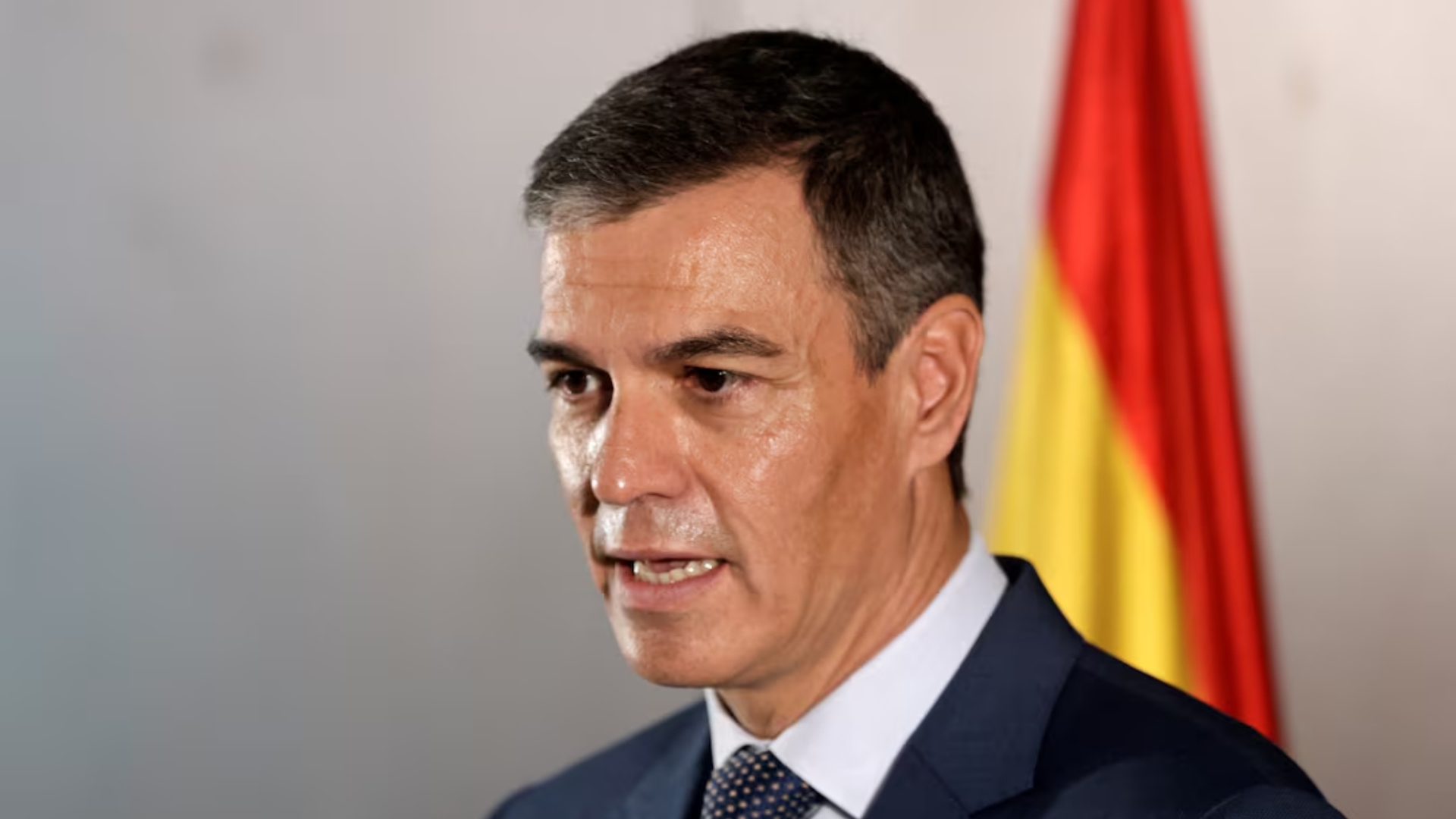Summary
- Spanish Prime Minister Pedro Sanchez visits China
- He says EU should reconsider import tariffs on Chinese EVs
- Sanchez says EU and China should find a compromise
KUNSHAN, China, (Reuters) – Spanish Prime Minister Pedro Sanchez said on Wednesday the European Union should reconsider proposed import tariffs on Chinese-made electric vehicles, and urged Brussels and Beijing to find a compromise that avoids a trade war.
Sanchez’s comments during a visit to China suggest a change of tack from Spain, which until now has supported the tariffs, while signalling concern about the impact any potential fallout from the EU-China trade spat could have on Spanish industry.
“I have to be frank, we have to reconsider our position, all of us. Not only the member states but also the (European) Commission,” Sanchez said at an event in an industrial park in the Chinese city of Kunshan.
“We don’t need another war, in this case a trade war. I think we need to build bridges between the European Union and China, and from Spain we will be constructive and try to find a compromise between China and the European Commission.”
The European Commission did not immediately respond to a Reuters request for comment.
Chinese President Xi Jinping urged Sanchez on Monday to play a “constructive role” in improving strained ties between Beijing and Brussels.
EU member states are due to vote in October on whether to adopt additional duties of as much as 36.3% on Chinese EVs, a threat that China has countered by launching anti-dumping investigations into imports of pork and dairy from Europe.
In a non-binding vote in July, France and Italy also voted in favour of the tariffs. Germany, Finland and Sweden abstained.
The EU has revised some duties or lowered final proposed tariffs.
Asked if the Italian position over the EV tariffs had changed, Italy’s Industry Minister Adolfo Urso told Reuters on the sidelines of a parliamentary question time session that he expected a negotiated solution.
“They are discussing it in Geneva at the moment,” Urso said in reference to a formal dispute that China initiated at the World Trade Organization.
Any retaliation by China for the tariffs could hit Spain especially hard. Spanish pork farmers were the bloc’s biggest exporters, with 1.5 billion euros ($1.66 billion) of products sold to China 2023.
Chinese automakers are also urging Beijing to increase tariffs on imported European gasoline-powered cars in retaliation for Brussels’ proposed curbs on Chinese exports of EVs, Chinese state media reported.
‘A CERTAIN OPTIMISM’
A Spanish government source said the delegation in China felt Beijing saw the visit as more important than one Sanchez made in March 2023, increasing confidence that an agreement on pork tariffs could be close.
The National Association of Spanish Meat Industries (ANICE) said it had noticed “a certain optimism” listening to Sanchez and his team and expressed hope that this was the case.
Sanchez was also in China to attract investment, especially in the renewable energy sector. Spain said on Tuesday it had signed a deal under which China’s Envision Group would build a $1 billion plant to manufacture machinery for the production of green hydrogen.
Also this week, China renewed negotiation efforts seeking to overturn the proposed duties on Chinese EVs.
($1 = 0.9056 euros)
Reporting by Casey Hall and Beijing newsroom, Belen Carreno and Emma Pinedo in Madrid; Additional reporting by Eduardo Baptista and Angelo Amante; Writing by Bernard Orr and Charlie Devereux; Editing by Kim Coghill, Sonali Paul, Aislinn Laing, Timothy Heritage and Kevin Liffey











